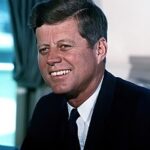The Secret Missile Trade Agreement
President Kennedy faced nuclear war during the Cuban Missile Crisis in October 1962. Soviet missiles in Cuba threatened American cities within minutes. Kennedy publicly demanded Soviet withdrawal without any concessions. 🚀 However, he secretly agreed to remove Jupiter missiles from Turkey. This Kennedy secret missile deal remained hidden from Congress and the American people. The president publicly denied any quid pro quo arrangement with the Soviets.
The Deception Unfolds
Kennedy’s administration crafted a narrative of Soviet capitulation to American demands. They portrayed Khrushchev as backing down under pressure. ⚠️ The truth revealed a mutual compromise that avoided nuclear war. Jupiter missiles in Turkey were already obsolete and scheduled for removal. Yet Kennedy treated this concession as a major diplomatic victory. His advisors maintained the deception for years after the crisis.
Congressional Oversight Failure
Congress received incomplete briefings about the crisis resolution. Kennedy’s team emphasized Soviet concessions while hiding American compromises. 📊 This Kennedy secret missile arrangement violated principles of democratic transparency. Lawmakers made future policy decisions based on false information. The deception undermined constitutional checks and balances during the Cold War.
Impact:
Erosion of Democratic Accountability
The Kennedy secret missile deception weakened congressional oversight of foreign policy. Lawmakers couldn’t effectively evaluate future nuclear negotiations without complete information. This precedent encouraged subsequent presidents to withhold crucial details from Congress. 🔥 The executive branch gained disproportionate power over nuclear diplomacy. Democratic institutions suffered long-term damage from this breach of trust.
Cold War Diplomatic Consequences
The secret deal created dangerous precedents for superpower negotiations. Both sides learned that public posturing could mask private concessions. 🌍 This encouraged more complex and secretive diplomatic arrangements. Future arms control negotiations became increasingly opaque to public scrutiny. The crisis resolution model influenced decades of US-Soviet relations.
Historical Legacy and Trust
When details emerged years later, public trust in presidential honesty declined. The revelation coincided with Vietnam War deceptions and Watergate scandals. 📉 Americans became more skeptical of official government narratives about foreign policy. The missile trade secret contributed to a broader crisis of confidence in federal institutions. This erosion of trust continues to influence American political discourse today.
